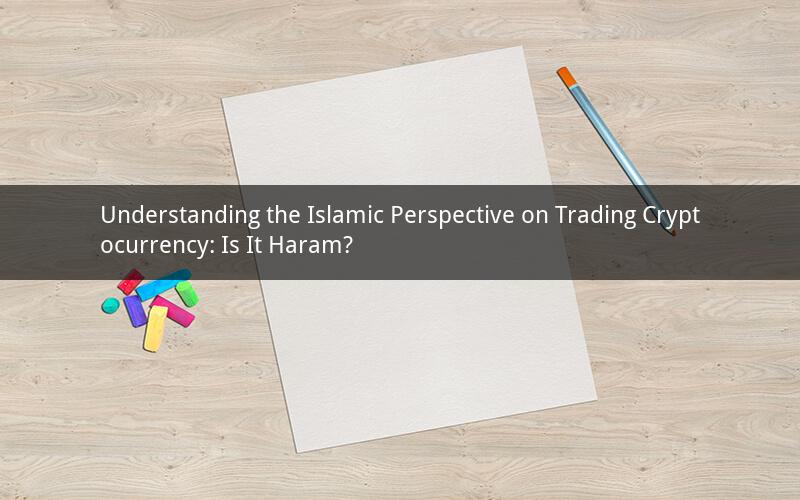
In recent years, the rise of cryptocurrencies has sparked a debate among Muslims worldwide. With the increasing popularity of digital currencies like Bitcoin and Ethereum, many Muslims are questioning whether trading these currencies is permissible in Islam. This article delves into the Islamic perspective on trading cryptocurrency and whether it is considered haram (forbidden) or halal (permitted).
1. What is Cryptocurrency?
Cryptocurrency is a digital or virtual currency that uses cryptography for security. It operates independently of a central bank and is typically based on a decentralized technology called blockchain. Cryptocurrency is designed to be a digital alternative to traditional fiat currencies like the US dollar or the Euro.
2. Islamic Principles and Cryptocurrency
Islam, like other religions, has specific principles and rules that govern financial transactions. The Quran and Hadith (sayings and actions of Prophet Muhammad) provide guidance on what is considered halal and haram. When it comes to cryptocurrency, there are several Islamic principles to consider:
a. Riba (Interest): The Quran strictly prohibits charging or receiving interest on loans. Since most cryptocurrency transactions involve interest, some Islamic scholars argue that trading cryptocurrencies could be considered haram due to the interest aspect.
b. Gharar (Uncertainty): Gharar refers to transactions with excessive uncertainty. Islamic finance prohibits transactions that involve high levels of uncertainty or risk. Cryptocurrency markets can be highly volatile, leading to concerns about gharar.
c. Maysir (Gambling): Some scholars argue that cryptocurrency trading resembles gambling, as it involves speculation and high-risk investments. Maysir is strictly forbidden in Islam.
3. Islamic Cryptocurrency and Halal Alternatives
To address the concerns related to trading cryptocurrency, some Islamic scholars have proposed the creation of halal cryptocurrency platforms. These platforms aim to adhere to Islamic principles by eliminating interest, minimizing gharar, and avoiding maysir. Here are some key aspects of halal cryptocurrency:
a. Interest-Free Transactions: Islamic cryptocurrency platforms encourage interest-free transactions, which is a significant departure from traditional finance.
b. Transparency: Islamic finance emphasizes transparency, and halal cryptocurrency platforms strive to provide clear and accessible information about transactions and investments.
c. Risk Management: Halal cryptocurrency platforms focus on managing risks to protect investors and ensure compliance with Islamic principles.
4. Is Trading Cryptocurrency Haram?
The question of whether trading cryptocurrency is haram or halal remains a matter of debate among Islamic scholars. Some argue that it is haram due to the aforementioned concerns, while others believe that it can be permissible if certain conditions are met:
a. Interest-Free Transactions: If a cryptocurrency platform ensures interest-free transactions, some scholars argue that trading can be considered halal.
b. Risk Management: If proper risk management is implemented, and the level of uncertainty is minimized, some scholars may permit cryptocurrency trading.
c. Compliance with Islamic Principles: If the cryptocurrency platform adheres to Islamic principles and avoids activities like gambling, it may be deemed halal.
5. Frequently Asked Questions
Q1: Is it haram to mine cryptocurrency?
A1: The permissibility of mining cryptocurrency is also a subject of debate. Some scholars argue that it is permissible if the mining process does not involve interest or excessive risk.
Q2: Can Muslims invest in cryptocurrency funds?
A2: Investing in cryptocurrency funds may be permissible if the funds comply with Islamic principles and avoid prohibited activities like interest and gambling.
Q3: Is it halal to use cryptocurrency for daily transactions?
A3: The use of cryptocurrency for daily transactions is generally considered halal, as long as the platform adheres to Islamic principles and avoids interest and gambling.
Q4: How can Muslims ensure that their cryptocurrency investments are halal?
A4: Muslims can ensure their investments are halal by researching the platforms they use, verifying that they adhere to Islamic principles, and consulting with Islamic scholars if needed.
Q5: Is it haram to trade cryptocurrency on margin?
A5: Trading cryptocurrency on margin may be considered haram due to the high levels of risk and uncertainty involved. It is advisable for Muslims to avoid margin trading unless they are confident that the platform complies with Islamic principles.
In conclusion, the debate over whether trading cryptocurrency is haram or halal in Islam is complex and continues to evolve. While some Islamic scholars argue that it is permissible under certain conditions, others remain concerned about the interest, uncertainty, and gambling aspects of cryptocurrency trading. As Muslims navigate the world of digital currencies, it is crucial to seek guidance from Islamic scholars and ensure that their financial transactions align with Islamic principles.